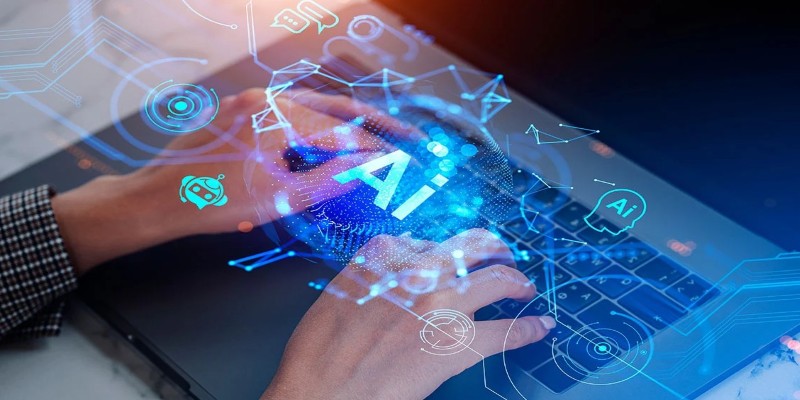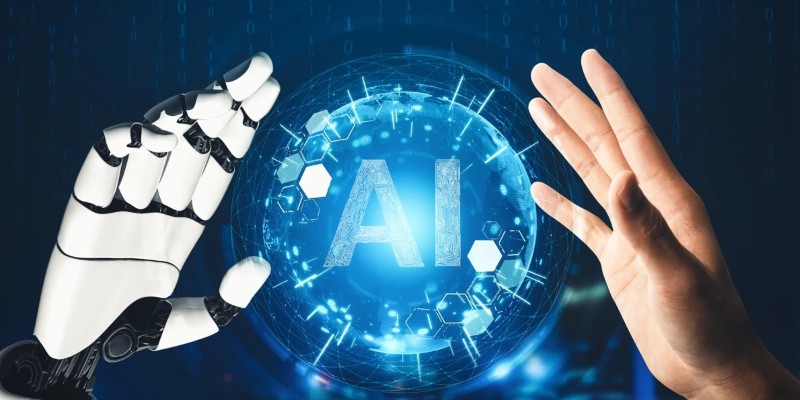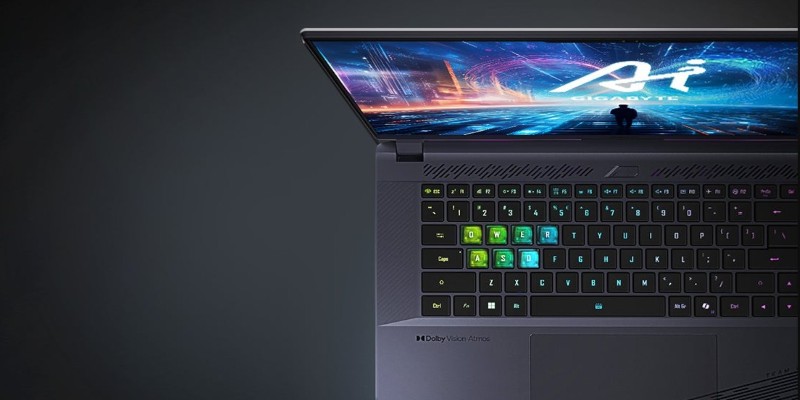The Future Of Laptops With AI Technology
For decades, laptops have been essential tools for work, education, and entertainment. As we move through 2025, the integration of artificial intelligence (AI) is transforming these devices, making them more intuitive, efficient, and responsive to user needs. This article delves into how AI is reshaping laptops, the benefits it brings, and what we can anticipate shortly.
AI-Powered Performance Optimization
One of the most significant impacts of AI in laptops is performance optimization. AI algorithms analyze user behaviour and system usage patterns to manage resources effectively. This means your computer can allocate processing power where needed most, ensuring smooth multitasking and efficient operation. For instance, if you're editing a video, the system can prioritize CPU and GPU resources to enhance performance. At the same time, during lighter tasks like browsing, it conserves energy to extend battery life.

Manufacturers are embedding dedicated AI processors, known as Neural Processing Units (NPUs), into laptops. These NPUs handle AI-specific tasks, offloading work from the main CPU and GPU, improving performance and energy efficiency. For example, Intel's Lunar Lake processors feature advanced NPUs capable of delivering substantial AI processing power, enabling real-time adjustments and enhancements.
Enhanced User Experience Through Personalization
AI enables laptops to offer a more personalized user experience. By learning from your habits and preferences, AI can customize various aspects of the system. This includes adjusting display brightness and colour temperature based on ambient lighting and usage patterns, managing notifications to reduce distractions during focused work periods, and suggesting apps or documents you might need based on your activity.
AI-powered voice assistants have become more sophisticated, allowing for seamless voice recognition and natural language processing. This means you can interact with your laptop more naturally, using voice commands to perform tasks, search for information, or control smart home devices without manual input.
Security And Privacy Enhancements
AI is playing a crucial role in enhancing laptop security. Advanced threat detection systems use AI to identify unusual behaviour that may indicate malware or unauthorized access, providing real-time protection against cyber threats. Facial recognition technology, powered by AI, offers secure and quick login capabilities, ensuring only authorized users can access the device.

Moreover, AI can manage privacy settings dynamically. For instance, it can detect when someone is looking over your shoulder and blur the screen to prevent unauthorized viewing. These intelligent privacy features help safeguard sensitive information in various environments.
AI Integration In Creative Applications
For creative professionals, AI integration in laptops is revolutionizing workflows. AI-powered tools can assist in photo and video editing, music composition, and graphic design. Features like automatic image enhancement, background removal, and content-aware editing streamline the creative process, allowing artists to focus more on their vision and less on manual adjustments.

Applications are increasingly leveraging AI to provide real-time suggestions and corrections, enhancing productivity and the quality of work. This integration makes advanced creative tools more accessible to beginners while providing professionals with powerful features to expedite their projects.
Advancements In Natural Language Processing
AI's Natural Language Processing (NLP) capabilities enhance laptop communication and collaboration tools. AI-driven transcription services can convert speech to text in real-time, making it easier to document meetings or lectures. Language translation features powered by AI enable seamless communication across different languages, breaking down barriers to global collaboration.
These advancements are particularly beneficial in educational and professional settings, where accurate and efficient communication is essential. AI ensures that language differences do not impede the flow of information, fostering a more inclusive environment.
Improved Battery Management
Battery life remains a critical concern for laptop users. AI contributes to more intelligent battery management by analyzing usage patterns and optimizing power consumption. It can predict when you need extended battery life and adjust system settings to conserve energy, such as dimming the display, reducing processor speed, or closing unnecessary background applications.
This intelligent power management ensures that your laptop remains operational when needed most, reducing the chances of unexpected shutdowns and enhancing the overall user experience.
AI In Gaming Laptops
The gaming industry is also experiencing the benefits of AI integration in laptops. AI algorithms can optimize game settings based on hardware capabilities and user preferences, providing a balanced experience between performance and visual quality. Real-time AI-driven enhancements, such as upscaling resolutions and improving frame rates, contribute to more immersive gameplay.

Additionally, AI can assist in monitoring system health during gaming sessions, managing thermals, and preventing overheating, which ensures consistent performance and prolongs the lifespan of the hardware.
Future Prospects And Considerations
As AI technology evolves, we can anticipate even more innovative laptop applications. Future developments may include:
Contextual Awareness:
Laptops could become more contextually aware, adjusting their behaviour based on the user's environment and activities. For example, they could switch to silent mode during meetings or optimize performance when connected to external displays.
Advanced Predictive Maintenance:
AI could predict hardware failures before they occur, alert users to potential issues, and suggest preventive measures, thereby reducing downtime and maintenance costs.
Enhanced Accessibility Features:
AI can further improve accessibility by providing real-time sign language interpretation, voice-controlled interfaces for users with mobility challenges, and personalized learning tools for educational purposes.

However, integrating AI also raises essential considerations regarding data privacy and security. As laptops become smarter and collect more user data to offer personalized experiences, it is crucial to ensure that this data is managed responsibly and securely. Users should be aware of the data their devices collect and have control over their privacy settings.
Conclusion
The fusion of AI technology with laptops is ushering in a new era of computing, where devices are tools and intelligent partners that adapt to and anticipate user needs. AI redefines what we can expect from our laptops, from performance optimization and personalized experiences to enhanced security and creative assistance. As we look to the future, the continued advancement of AI promises to bring even more exciting developments, making our interactions with technology more seamless and intuitive than ever before.





